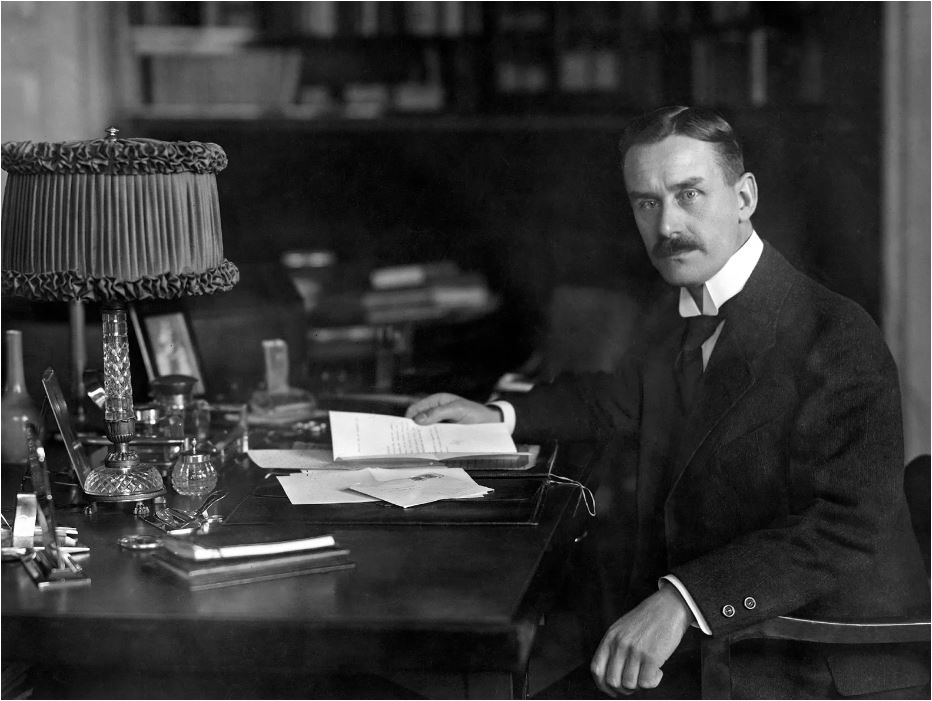Why was Thomas Mann Awarded the Nobel Prize for Literature in 1929?
Unraveling the Nobel Recognition: Thomas Mann's Literary Brilliance
In 1929, the Nobel Prize for Literature was bestowed upon the celebrated German novelist Thomas Mann, in recognition of his remarkable literary contributions that left an enduring impact on the world of letters. Mann’s profound storytelling, insightful social commentary, and thought-provoking themes set him apart as a literary giant, making him a deserving recipient of this prestigious accolade.
1. Artistic Mastery:
At the heart of Mann’s Nobel Prize win lies his unparalleled artistic mastery. Throughout his prolific career, he displayed an extraordinary command of language and narrative technique. His magnum opus, “The Magic Mountain” (Der Zauberberg), published in 1924, exemplified his ability to weave intricate and multi-layered narratives that delved into the complexities of the human psyche. His writing style was characterized by rich symbolism, profound metaphors, and an astute understanding of human emotions, elevating his works to the realm of literary greatness.
2. Social Commentary:
Mann’s novels often served as vehicles for incisive social commentary. In “Buddenbrooks” (1901), he explored the decline of a bourgeois family, capturing the changing landscape of German society during the late 19th and early 20th centuries. “The Magic Mountain” delved into the intellectual and social dilemmas of pre-World War I Europe. Mann’s keen observations of societal shifts and his ability to intertwine them with compelling narratives resonated deeply with readers, solidifying his reputation as a writer with a keen eye for social nuances.
3. Humanistic Themes:
Throughout his body of work, Mann grappled with timeless humanistic themes, including the complexities of morality, the interplay of reason and emotion, and the nature of art and beauty. In “Death in Venice” (Der Tod in Venedig), published in 1912, he explored the inner turmoil of an aging writer captivated by the beauty of youth. Mann’s exploration of human desires and the human condition reflected a deep understanding of the human experience, making his works resonate with readers across generations.
4. Intellectual Rigor:
Thomas Mann’s writing exhibited intellectual rigor and philosophical depth. He engaged with the ideas of his time, often drawing on classical literature, psychology, and philosophy to enrich his narratives. His ability to blend complex philosophical concepts with compelling storytelling showcased his intellectual prowess and set him apart as a writer of remarkable depth and substance.
5. International Appeal:
Thomas Mann’s literary works transcended national boundaries, garnering international acclaim and readership. His novels were translated into multiple languages, allowing people from different cultures to experience the richness of his prose and the universality of his themes. Mann’s ability to resonate with a global audience contributed to his recognition by the Nobel Committee.
In conclusion, Thomas Mann’s Nobel Prize for Literature in 1929 was a testament to his literary genius and his significant contributions to the world of literature. His artistic mastery, thought-provoking themes, incisive social commentary, intellectual rigor, and international appeal established him as a literary giant of his time. Mann’s recognition with the Nobel Prize remains a fitting tribute to a writer who used the power of words to explore the depths of the human experience and challenge prevailing societal norms. His legacy endures, inspiring writers and readers alike to reflect on the complexities of life through the lens of his enduring literary works.





